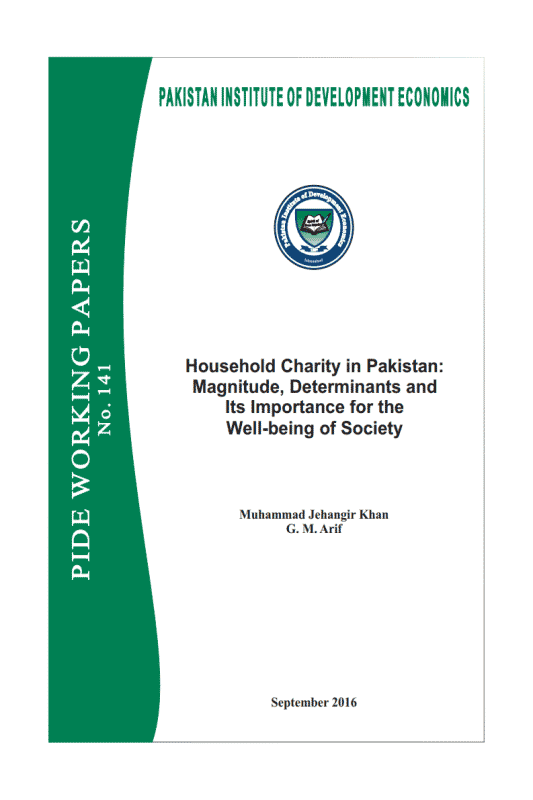Household Charity in Pakistan: Magnitude, Determinants and Its Importance for the Well-being of Society
This study examines the magnitude, patterns and determinants of household charity in Pakistan by using the 2010 Pakistan Panel Household Survey (PPHS). Previous studies have limited information on social and economic conditions of households; hence, little work has been carried out on the patterns and determinants of charitable giving, due to data limitations. This study estimated the size of individual giving as Rs 142 billion; adjusting for the value of time volunteered. Donation is increased with expenditure quintiles, whereas households belong to the poorest quintile are also very generous in participating in charitable giving. Double hurdle model is used to examine the determinants of donations. Results suggest that those households with high expenditure, older age, more children and more educated members give more to charity. Households that own the dwelling unit donate more to charity. The bigger the size of the housing unit (number of rooms), the more a household donates to charity.




